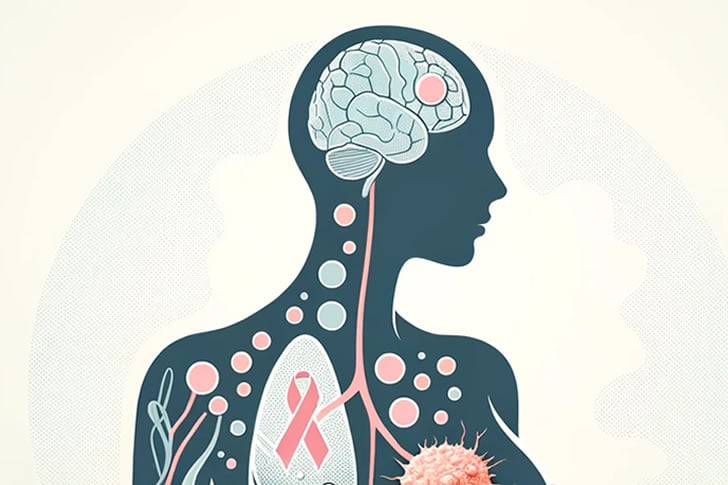Coping with pain from metastatic breast cancer involves multiple strategies. Here’s how to manage pain effectively and improve your quality of life.

Understanding Pain in Metastatic Breast Cancer
Pain is a common symptom in metastatic breast cancer, where cancer spreads to other parts of the body. It can arise from the cancer itself, treatments, or other related conditions.
Types of Pain Associated with Breast Cancer
Bone Pain
: Often occurs when cancer cells spread to the bones.Nerve Pain
: Results from damage or pressure on nerves.Soft Tissue Pain
: Involves muscles or organs affected by cancer spread.Communicating Your Pain
Be Descriptive
: Use specific words to describe your pain (e.g., sharp, throbbing).Track Patterns
: Note when pain occurs, its severity, and what relief methods work.Regular Check-ins
: Maintain open communication with your healthcare team.
Pain Management Strategies
Medications
Over-the-Counter (OTC) Analgesics
: Useful for mild to moderate pain (e.g., acetaminophen, ibuprofen).Prescription Medications
: Includes opioids for severe pain, always follow the doctor's dosage instructions.Adjuvant Therapies
: Antidepressants or anticonvulsants for nerve pain.
Non-Pharmacological Treatments
Physical Therapy
: Exercises to strengthen muscles and improve mobility.Acupuncture
: May reduce pain and improve well-being.Massage Therapy
: Helps in relieving muscle tension and stress.Heat/Cold Therapy
: Alleviates pain through temperature changes.
Complementary Therapies
Relaxation Techniques
: Mindfulness, meditation, and deep breathing exercises.Cognitive Behavioral Therapy (CBT)
: Changing negative thought patterns to improve coping strategies.
Lifestyle Adjustments
Exercise
: Engage in low-impact activities like walking or swimming.Nutrition
: Balanced diet to support overall health and energy levels.Rest and Sleep
: Prioritize sleep and rest to aid recovery and energy.
Coping with Emotional and Psychological Impact
Pain from metastatic breast cancer can lead to emotional stress. Addressing mental health is vital:-
Support Groups
: Join local or online communities for shared experiences and support.-
Counseling
: Seek professional help to manage anxiety, depression, or fear.-
Mindfulness and Relaxation
: Practice yoga, meditation, or listen to soothing music.
When to Seek Immediate Help
Sudden Increase in Pain
: Unexpected or severe spikes in pain.New Symptoms
: Such as neurological changes, difficulty breathing, or unmanageable pain.
Building a Support Network
Family and Friends
: Include them in your care plan for emotional and practical support.Professional Support
: Utilize services from healthcare providers, social workers, and patient advocates.
Patient Stories and Testimonials
Hearing from others can provide comfort and insights:-
Online Forums
: Participate in discussions on websites dedicated to breast cancer.-
Mentorship Programs
: Connect with survivors who have navigated similar experiences.
Final Thoughts
Managing pain in metastatic breast cancer is a multifaceted approach involving medical treatment, lifestyle adjustments, and emotional support. Collaborate with your healthcare team to create a personalized pain management plan tailored to your needs.









